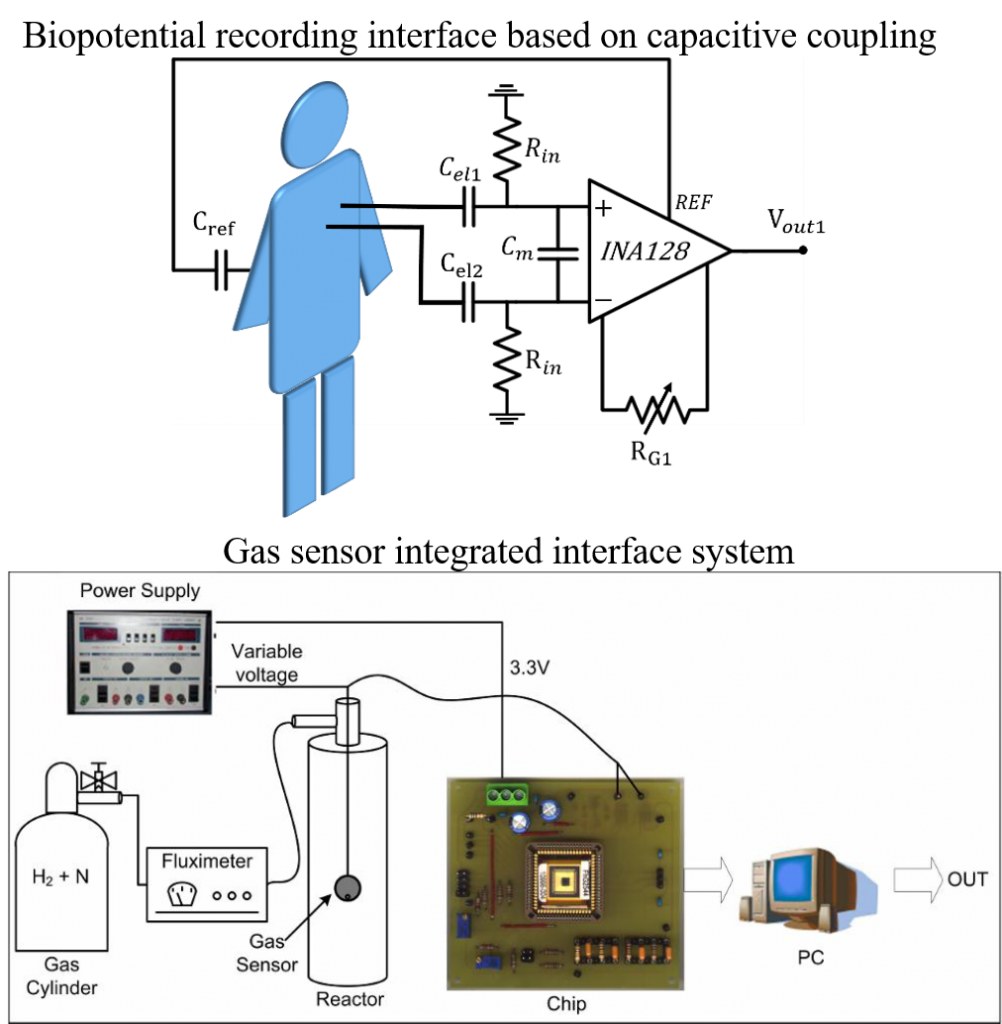Scope
 Natural phenomena are often characterized by physical, chemical or biological events. In order to detect and quantify these events, sensing devices/instruments, to be inserted as first and main element in measurements and control systems, represent a priority actually and in the next future.
Natural phenomena are often characterized by physical, chemical or biological events. In order to detect and quantify these events, sensing devices/instruments, to be inserted as first and main element in measurements and control systems, represent a priority actually and in the next future.
In the last decades, smart sensors have been designed, which use both electronic systems and solid-state sensors to increase their performances, deeply employed in numerous applications, as: life and health quality increase for living beings, ambient, agriculture, industrial process control, transportation, etc.
The information delivered by sensors is typically a signal (generally analog, that is variable in a continuous way or digital as in the case of the wide applications that include oscillators) to be utilized either by another system that elaborates the data or directly by the user through a suitable interface (also named front-end or read-out system).
The electronic interface is particularly important in both sensor and sensor systems. A suitable sensor interface has to be able to adapt itself to different kinds of sensors whatever the measurand may be, through appropriate electronic circuits, and to improve signal processing by suitable circuit design able to reduce as much as possible the electronic noise. Electronic interfaces must take into account the entity of sensor variations as well as their baseline, considering that these variations are typically slow and measurements should be done without perturbing the device under test as much as possible (e.g., impedance loading effects negligible). These electronics circuits can be designed in discrete or integrated form (the latter in CMOS technology), possibly with the following features: low voltage supply, low power consumption, low noise, low offset, and their temperature-dependence.
This technical commission will take in deep consideration innovation aspects of the electronic interfaces as well as new ideas, even expressed at theoretical level, of detection-interface paradigms. Other scopes are: dissemination of the latest news on the research topics of ELECTRONICS FOR SENSORS, improving the dialogue and promote cohesion and collaboration among research groups as well as the organization of technical events, evaluation of award candidates and activation of a fruitful interaction with the industrial world.
 Chair
Chair
Giuseppe Ferri was born in L’Aquila, Italy. He received the “Laurea” degree (cum laude) in electronic engineering in 1988 in Electrical and Information Engineering. In 1991, he joined the Department of Electronic Engineering, University of L’Aquila, L’Aquila, Italy, where he is actually a full professor of Electronics and Microelectronics. His research activity mainly concerns the design of analogue electronic circuits for sensor and biomedical applications both in voltage and in current mode. He is author/coauthor of 115 publications on international journals and 250 papers on conferences, 4 patents and 3 books. He is an IEEE Senior Member, and Editor of Journal of Circuits, Systems, and Computers (JCSC).
